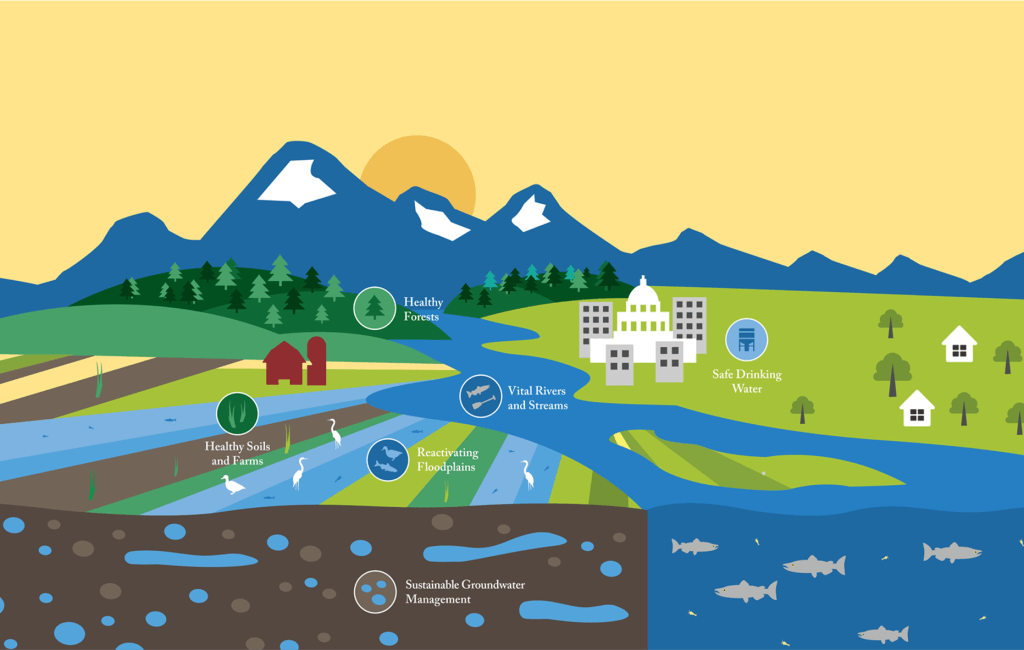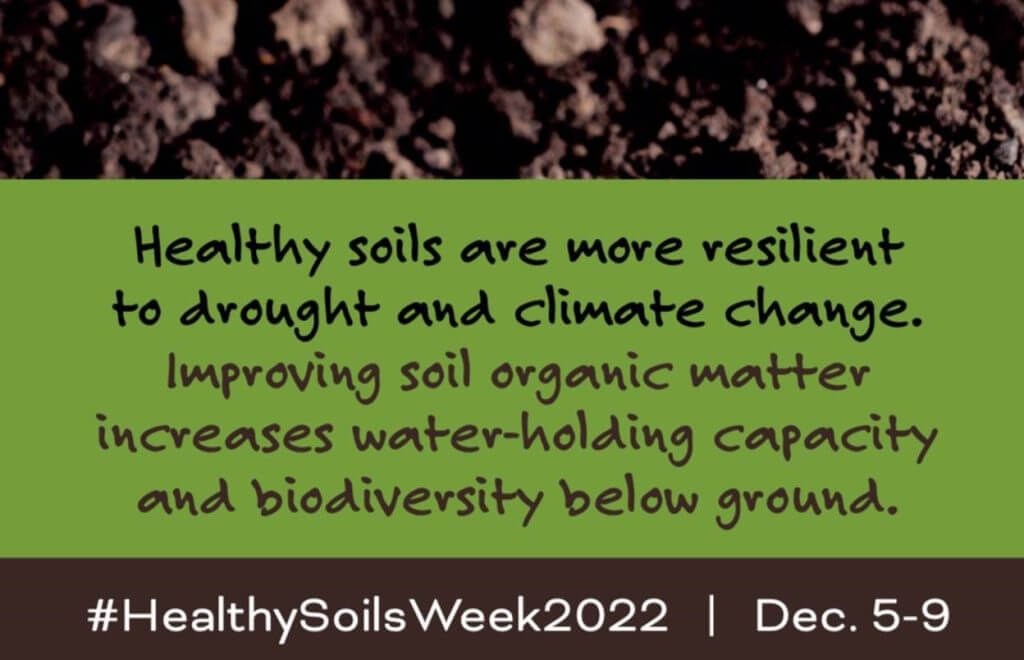By Bruce Houdesheldt
As we celebrate Healthy Soils Week in the Sacramento River Basin, we take a moment to reflect on the amazing benefits our soils provide for food productivity, climate resilience and biodiversity. From a water management perspective, healthy soils are an important element of ridgetop to river mouth water management, as healthy soil practices improve soil water holding capacity, infiltration, and water availability and quality while reducing soil erosion, runoff, and dust. We have learned that if we feed our soils, they will feed us and the amazing biodiversity dependent on soil health.

We know the Sacramento River Basin has an amazing and diverse landscape where the soils support biodiversity–more than 225 species including numerous birds on the world-renowned Pacific Flyway, many of the state and federally listed species including the Giant Garter Snake (GGS), and habitat such as oak woodlands. This year, California Agriculture Secretary Karen Ross hosted a webinar with a robust discussion on the importance and the impact of belowground biodiversity on soil health. This featured leading scientists who are part of a Belowground Biodiversity Advisory Committee (BBAC) charged to better understand how soil biodiversity may impact soil health. The committee highlighted the multi-benefits of below ground biodiversity, including food, fuel, fiber and clean air as part of the energy cycle. They will prepare a report with recommendations on biodiversity indicators as a proxy of soil health and ecosystem functions by March 2023.

The report will also help inform the policies on nature-based solutions, which will be helpful to various partners in the Sacramento River Basin as we explore “Nature-Based Solutions: Enlisting Natural and Working Lands in the Sacramento River Basin in the Fight against Climate Change,” a comprehensive effort to manage land and water from ridgetop down to river mouth to provide multiple benefits as water moves through the region. These efforts, which include forest management, floodplain reactivation, groundwater management and recharge, and healthy soils management, support all beneficial water uses in the region (for cities, farms, fish, birds and other wildlife, hydropower production, and recreation) while also helping to combat climate change.
Landowners and conservationists in the Sacramento River Basin are continuing to work together to manage farms, ranches, refuges and wetlands to promote healthy soils that benefit agronomic and environmental efforts. Soil health and cover cropping increase the utilization of our working landscapes, which provide essential benefits for our economy, health and quality of life, including clean water, nutritious food, outdoor recreation, while contributing to the state’s climate goals.
The California Department of Food and Agriculture has a website on practices that boost organic matter in soil increase water-holding capacity in addition to reducing greenhouse gas emissions. These practices are valuable tools for drought and climate change. Read more here.
The webinar can be seen here. We would welcome your thoughts by contacting me at bruceh@norcalwater.org.




